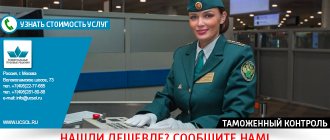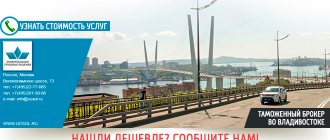Every person traveling abroad must go through customs control. The main task of the customs service is to suppress illegal attempts to export or import foreign currency, jewelry, masterpieces of painting and other valuable items. To do this, an inspection procedure is carried out, during which the passenger’s luggage and personal belongings are checked by representatives of the airport security service. In our article we propose to discuss the issue of how to go through customs control at the airport.
All passengers on domestic and international flights are subject to passport control and security controls
Check procedure at the airport
Every person arriving at the airport for the purpose of traveling abroad must check in for their flight . During this procedure, airline employees check the authenticity of travel documents and issue a boarding pass. This document indicates the flight number and time of departure, as well as the gate number at the takeoff field. In addition, the boarding pass contains information about the seat that is provided to the passenger on board the aircraft.
Each passenger terminal at international airports has special displays that display information about the check-in counters of different airlines. Passengers can register their details one day before the departure of the ship. This service can be used by passengers purchasing tickets online. Using specialized services eliminates the need to stand in line at the check-in counter. If you have luggage, travelers need to go to a special counter, where airline representatives will check it out. During this process, the dimensions of the suitcases are measured and weighed. If the regulations established by the carrier are violated, the traveler must pay an additional fee for exceeding the limits.
Going through security control
The next mandatory step is to undergo a check at the airport security service . Representatives of the transport hub administration inspect the passenger's hand luggage and personal belongings . Each person must go through a special detector made in the form of a frame. This device reacts to all objects made of metal. If the device makes a sound indicating that metal objects have been detected, the passenger must remove all items from the pocket and remove the belt. It should be noted here that the detector does not react to piercings and other jewelry.
To check personal belongings, a special scanner is used that works on the X-ray principle. In some cases, airport security may ask the traveler to open the suitcase and show its contents. Quite rarely there are situations in which airport terminal employees ask tourists to take off their shoes or outerwear. However, this check is one of the important stages in identifying items that are prohibited for transportation.
customs control
The stage in question is one of the most important processes . During border control, customs specialists inspect travelers' luggage . This procedure is carried out to identify the presence of the following items:
- A large amount of cash in foreign currency.
- Cold steel and firearms, explosives, as well as cartridges and ammunition.
- Antique items or other valuables, the transportation of which requires payment of a state duty.
To pass all types of control at the airport, passengers on international flights must arrive at least two and a half hours before the plane's departure time.
The procedure in question has fairly simple regulations. To begin with, it is recommended to study the rules for passing customs control at the airport established in a particular country. Each country's customs service sets its own rules regarding the export and import of various items . An example is Thailand, where tourists are prohibited from exporting soil samples.
Border control is one of the mandatory stages of registration for a flight.
Quite interesting is the fact that each airport uses its own passenger screening system. This means that customs control can be carried out before security checks or be the last stage of inspection, after which the passenger can board the aircraft.
Key Aspects
Initially, it is worth analyzing in detail all the processes associated with flying to another country. Every citizen who intends to fly to another state in 2021 undergoes the following procedures at the airport:
- Check-in for the flight.
- Luggage check-in.
- Passing customs control.
- Passing passport control.
- Passing security control and manual inspection.
It is advisable to arrive at the airport at least 2-4 hours before the expected departure. The fact is that check-in for a flight begins three hours before departure, and sometimes much earlier (1-3 days).
Therefore, during this time, a person will need to not only go through all the controls, but also find his flight on the board in order to know exactly where to go to check-in. It ends 40-60 minutes before the expected departure.
This author's video describes in detail and gives step-by-step instructions on what to do at the airport if a person is flying for the first time.
Even if a person is only 5 minutes late for check-in, he will no longer be able to board the plane.
Border control officers can refuse to allow a person to fly even for the most innocuous reasons, for example, due to outstanding fines in the traffic police or unpaid alimony or loan.
Therefore, it is advisable to pay off all debts before departure so that no questions arise at border control and customs. You can check whether there is a ban on traveling abroad on the website nevylet.rf.
The passage of customs control using the example of the airport in Frankfurt am Main is shown in the video.
Border control zones
Each airport uses two corridors where customs inspections are carried out. The creation of two corridors made it possible to divide the queue into two streams, which significantly optimized the entire process. The green corridor is used for processing passengers who do not need to fill out a customs declaration for their luggage. The red zone is used to serve those tourists who need to pay customs duties required for the transportation of various objects.
Green corridor
This zone can be used by all tourists whose luggage does not contain prohibited items or those objects that are subject to customs duties. Those people who bring less than ten thousand dollars into the country are sent here. When leaving the country, the green corridor can be used by persons taking less than three thousand dollars for a trip. Passengers taking jewelry with a total value of less than twenty-five thousand dollars on a trip can use the green zone.
In addition to all of the above, this zone can be used by all tourists who are exporting jewelry from the country, to which permitting documents are attached. The issue of transporting cigarettes and alcoholic beverages purchased for personal use deserves special attention. Customs officers allow the carriage of no more than one block of tobacco products and three liters of alcoholic beverages. Otherwise, passengers will need to complete a customs declaration.
It is important to note that using the green zone is not a reason to refuse a security check. Airport terminal staff can search any passenger, which makes them suspicious. According to statistics for two thousand and sixteen, about ninety-five percent of tourists from the total flow of passenger traffic used the green corridor at the Vnukovo air harbor.
Customs control includes inspection of personal luggage and belongings
Red zone
Passengers whose luggage contains items that are subject to mandatory declaration should use the red zone . This group includes objects whose transportation is limited by law. This zone is intended to serve tourists who export securities and large sums of money from the country.
All travelers who are carrying large and heavy cargo or personal items with a total value exceeding ten thousand dollars need to queue in this zone. Customs authorities will check the passenger's luggage in accordance with the list of valuable items specified in the tax return. Special equipment is used for this. Before heading to the airport, it is recommended that you review the list of items that have transportation restrictions.
Current legislation prohibits the transportation of explosives, bladed weapons and firearms without accompanying documentation. In addition, it is prohibited to export animals listed in the Red Book. Travelers will face adverse consequences when attempting to transport government awards or anything considered cultural property. Any items that have poisonous or narcotic properties are prohibited for transportation. In addition to all of the above, the legislation imposes restrictions on the procedure for exporting sturgeon caviar (up to two hundred and fifty grams) and seafood (no more than five kilograms) from the country.
A detailed list of items that are prohibited for transportation is published on the official portal of each air carrier. There you can also find a list of items that are subject to various restrictions. If prohibited items are detected during screening at the airport, security officers may prohibit the passenger from departing the country. Customs officers draw up a special act, according to which valuables are confiscated and the completed papers are transferred to law enforcement agencies. Based on these papers, the prosecutor's office initiates a criminal or administrative case.
Clearing customs
Crossing the border of the Russian Federation
Passengers can go through customs clearance and customs control without filling out a customs declaration and without paying customs duties along the “Green Corridor” if they do not have unaccompanied (separately following) luggage, and their personal belongings do not contain items prohibited or restricted for import into the territory of the Russian Federation .
If such items are available, you must fill out a customs declaration and go through the “Red Corridor”. When a citizen goes to the “Green Corridor”, he thereby declares that he does not have goods that are subject to mandatory declaration. However, the non-application of certain forms of customs control in the “Green Corridor” does not mean that citizens are exempt from the obligation to comply with the customs legislation of the Russian Federation. If necessary, customs officers can use any forms of customs control provided for by the Customs Code in the Green Corridor.
A customs declaration must be completed by every person over 16 years of age. The goods of a minor under the age of 16 years are declared by one of the parents, adoptive parents, guardians or trustees, his accompanying person, and in case of organized departure/entry of a group of minors unaccompanied by parents, adoptive parents, guardians or trustees - by the head of such a group.
Moving foreign currency cash
1. Import by an individual of cash and (or) traveler's checks into the customs territory of the Customs Union is carried out without restrictions in the following order: - with a one-time import of cash and (or) traveler's checks for a total amount equal to or not exceeding the equivalent of 10 thousand US dollars, the specified funds and (or) traveler's checks are not subject to customs declaration in writing; - in case of a one-time import of cash and (or) traveler's checks for a total amount exceeding the equivalent of 10 thousand US dollars, the specified cash and (or) traveler's checks are subject to customs declaration in writing by submitting a passenger customs declaration for the entire amount of imported cash cash and (or) traveler's checks. A one-time import by an individual of cash and (or) traveler's checks for a total amount equal to or not exceeding the equivalent of 10 thousand US dollars can be declared in writing at the request of the individual. Import by an individual of monetary instruments (travelers' checks, bills of exchange, checks (bank checks), as well as securities in documentary form certifying the obligation of the issuer (debtor) to pay funds, which do not indicate the person to whom such payment is made), with the exception of traveler's checks, is carried out subject to customs declaration in writing by submitting a passenger customs declaration. 2. Export by an individual of cash and (or) traveler's checks from the customs territory of the customs union is carried out without restrictions in the following order: - with a one-time export of cash and (or) traveler's checks for a total amount equal to or not exceeding the equivalent of 10 thousand US dollars, the specified funds and (or) traveler's checks are not subject to customs declaration in writing; - in case of a one-time export of cash and (or) traveler's checks for a total amount exceeding the equivalent of 10 thousand US dollars, the specified cash and (or) traveler's checks are subject to customs declaration in writing by submitting a passenger customs declaration for the entire amount of exported cash cash and (or) traveler's checks. A one-time export by an individual of cash and (or) traveler's checks in a total amount equal to or not exceeding the equivalent of 10 thousand US dollars can be declared in writing at the request of the individual. Export by an individual of monetary instruments (travelers' checks, bills of exchange, checks (bank checks), as well as securities in documentary form certifying the obligation of the issuer (debtor) to pay funds, which do not indicate the person to whom such payment is made), with the exception of traveler's checks, is carried out subject to customs declaration in writing by submitting a passenger customs declaration. 3. In cases of import into the customs territory of the customs union or export from this territory by an individual of cash and (or) traveler's checks, conversion into US dollars is carried out at the rate established in accordance with the legislation of the Party through whose state border such cash is moved funds and (or) traveler's checks, on the day of submission of the passenger customs declaration to the customs authority. When customs declaring monetary instruments, with the exception of traveler's checks, the passenger customs declaration indicates the nominal value or the corresponding amount in the currency of a member state of the customs union or foreign currency, the right to receive which is certified by the monetary instrument. In the absence of a nominal value and the impossibility of determining the amount in the currency of a member state of the customs union or foreign currency, the right to receive which is certified by a monetary instrument, the passenger customs declaration indicates the number of transferred monetary instruments.
Moving luggage
In a simplified preferential procedure, without filling out a customs declaration and paying customs duties and taxes, individuals can import goods (except for vehicles) in accompanied and unaccompanied luggage, the total value of which does not exceed 65 thousand rubles and the total weight of which does not exceed 50 kg.
If the above standards are exceeded, and the total value and/or total weight of the goods is no more than 650 thousand rubles and no more than 200 kg, then to the extent of such excess, a single rate of customs duties and taxes is applied in the amount of 30% of the customs value of these goods, but not less 4 euros per 1 kg.
If the total cost of imported goods for personal use exceeds 650 thousand rubles and/or their total weight is more than 200 kg, then the rates of customs duties and taxes established by the general procedure and conditions of tariff regulation and taxation provided for participants in foreign economic activity are applied. These measures also apply if alcoholic beverages are imported in excess of existing restrictions by 5 times (in terms of such excess), or if an individual crosses the customs border of the Russian Federation more than once a week.
Individuals recognized in the prescribed manner as refugees or forced migrants, as well as those moving from foreign countries to the Russian Federation for permanent residence, may import without paying customs duties and taxes goods (except for vehicles) that were used and purchased by them before entry to the territory of the Russian Federation.
An individual who has reached the age of 17 can import/export at a time without paying customs duties and taxes 2 liters of alcoholic beverages (from 21 years of age), no more than 250 g of sturgeon caviar in original packaging and tobacco products (cigars - up to 50 pcs., cigarillos - up to 100 pcs., cigarettes up to 200 pcs., tobacco - 0.25 kg). In case of import of tobacco products of only one type, the import of 100 cigars, 200 cigarillos, 400 cigarettes and 0.5 kg of tobacco is allowed. The import/export of these goods is limited by Russian legislation.
Goods subject to mandatory declaration
The following are subject to mandatory declaration in writing: 1. goods for personal use, transported in unaccompanied luggage or delivered by the carrier to an individual; 2. goods for personal use, transported by any means, subject to prohibitions and restrictions, except for non-tariff and technical regulation measures; 3. goods for personal use, transported by any means, including temporarily imported, the cost and (or) quantity of which exceeds the norms for the movement of such goods with exemption from customs duties; 4. cash and (or) monetary instruments moved by individuals across the customs border, in cases established by the customs legislation of the Customs Union; 5. cultural values; 6. goods for personal use imported in accompanied luggage, if the individual transporting them has unaccompanied luggage.
Thus, the following are subject to customs declaration in writing:
- Russian and foreign currency (see above);
- securities (payment documents, traveler's checks);
- precious metals in any form and condition, with the exception of those moved for the purpose of temporary export/import of personal jewelry and other household items;
- precious stones (diamonds, rubies, emeralds, sapphires, alexandrites, natural pearls) with the exception of those moved for the purpose of temporary export/import of personal jewelry and other household items;
- weapons, ammunition, explosives;
- narcotic drugs, psychotropic substances, as well as their analogues;
- artistic and cultural values (paintings, sculptures, icons, ancient coins, orders, medals, stamps, etc.);
- poisonous and poisonous substances, as well as potent drugs (sleeping pills, painkillers, etc.);
- radioactive substances;
- endangered objects of wild flora and fauna, their parts and products obtained from them;
- technical means consisting of one or more radio transmitting or receiving devices or their combination and auxiliary equipment (radio stations for radio navigation and radio determination systems, cable television systems and other devices whose operation uses radio frequencies above 9 kHz);
- printed materials, film, photo and video materials constituting official and/or state secrets, aimed at promoting fascism, inciting racial, national and religious hatred, of a pornographic nature;
- goods for which, in accordance with the legislation of the Russian Federation, quantitative (weight) or cost restrictions are established for movement across the customs border without paying customs duties in a simplified preferential procedure, not intended for production or other commercial activities, if these restrictions are exceeded;
- goods intended for industrial or other commercial activities.
Failure by a passenger to submit a customs declaration in respect of such goods is considered by a customs official as a statement that the passenger does not have such goods.
All individuals may, at their own request and choice, declare other goods in writing. Movement of goods subject to control by government authorities
The movement by individuals of goods subject to control by other government bodies (Ministry of Internal Affairs, Ministry of Culture, Ministry of Agriculture, etc.) is allowed only upon provision of permits (licenses, certificates, etc.) from these bodies. A short list of goods, the import/export of which into the Russian Federation is permitted with the permission of the relevant government authorities:
| Product type | Type of permit and Russian government authority issuing it |
| 1.Weapons and ammunition | Permission, internal affairs bodies |
| 2. Radioelectronic equipment (radio telephones, radio stations, satellite communication systems, etc.). In addition to portable radio stations (radio telephones) and federal and regional cellular networks temporarily imported into the territory of the Russian Federation | Permission, Gossvyaznadzor of Russia under the Ministry of Communications of Russia |
| 3. Sturgeon caviar in quantities exceeding 250 g (factory packaging) | License, Ministry of Economic Development of Russia |
| 4. All types of sturgeon fish and products obtained from them | License, Ministry of Economic Development of Russia |
Foreign individuals may temporarily import, without paying customs duties and taxes, goods (with the exception of vehicles) necessary for these persons for personal use on the territory of the Russian Federation during the period of their temporary stay (Resolution of the Government of the Russian Federation dated November 29, 2003 No. 718).
For violation of customs rules, individuals are liable in accordance with the Code of the Russian Federation on Administrative Offenses and the Criminal Code of the Russian Federation.
In case of disagreement with the decision of a customs official, this decision can be appealed in accordance with Chapter 4 of the Customs Code of the Russian Federation. When considering a complaint, a higher official or a higher customs authority has the right to order an examination, which is carried out at the expense of the person moving the goods.
Goods for personal use, subject to prohibitions and restrictions
List of goods for personal use prohibited for import into the customs territory of the Customs Union and (or) export from this territory
Upon import:
| 1 | information on printed, audiovisual and other media prohibited for import into the customs territory of the customs union, export from the customs territory of the customs union and transit through the customs territory of the customs union; |
| 2 | service and civilian weapons, their main parts, and ammunition for them, prohibited for import into the customs territory of the customs union, export from the customs territory of the customs union and transit through the customs territory of the customs union; |
| 3 | hazardous waste prohibited for import and/or restricted for movement across the customs border during import and/or export; |
| 4 | special technical means intended for secretly obtaining information, the import of which into the customs territory of the customs union and export from the customs territory of the customs union is limited; |
| 5 | toxic substances that are not precursors of narcotic drugs and psychotropic substances, restricted for movement across the customs border; |
| 6 | narcotic drugs, psychotropic substances and their precursors, with the exception of limited quantities of narcotic drugs and psychotropic substances in the form of medicines for personal use for medical reasons in the presence of appropriate documents, as well as precursors in the amounts determined by the legislation of the state member of the customs union |
| 7 | human organs and (or) tissues, blood and its components, restricted for movement across the customs border during import and (or) export; |
| 8 | ozone-depleting substances prohibited for import into the customs territory of the customs union; |
| 9 | plant protection products prohibited for import into the customs territory of the customs union, falling under the scope of Annexes A and B of the Stockholm Convention on Persistent Organic Pollutants, signed in Stockholm on May 22, 2001; |
| 10 | tools for extraction (catch) of aquatic biological resources prohibited for import into the customs territory of the customs union; |
| 11 | ethyl alcohol and alcoholic products with a total volume of more than 5 liters per person over 18 years of age; |
| 12 | more than 200 cigarettes or 50 cigars or 250 grams of tobacco, or the specified products in a set with a total weight of more than 250 grams per person over 18 years of age. |
When exporting:
| 1 | information on printed, audiovisual and other media prohibited for import into the customs territory of the customs union, export from the customs territory of the customs union and transit through the customs territory of the customs union; |
| 2 | service and civilian weapons, their main parts, and ammunition for them, prohibited for import into the customs territory of the customs union, export from the customs territory of the customs union and transit through the customs territory of the customs union; |
| 3 | hazardous waste prohibited for import and/or restricted for movement across the customs border during import and/or export; |
| 4 | special technical means intended for secretly obtaining information, the import of which into the customs territory of the customs union and export from the customs territory of the customs union is limited; |
| 5 | toxic substances that are not precursors of narcotic drugs and psychotropic substances, restricted for movement across the customs border; |
| 6 | narcotic drugs, psychotropic substances and their precursors, with the exception of limited quantities of narcotic drugs and psychotropic substances in the form of medicines for personal use for medical reasons in the presence of appropriate documents, as well as precursors in the amounts determined by the legislation of the state member of the customs union |
| 7 | human organs and (or) tissues, blood and its components, restricted for movement across the customs border during import and (or) export; |
| 8 | waste and scrap of ferrous and non-ferrous metals included in the list of goods for the export and (or) import of which quantitative restrictions are established; |
| 9 | unprocessed precious metals, scrap and waste of precious metals, ores and concentrates of precious metals and raw materials containing precious metals, the export of which from the customs territory of the Customs Union is limited; |
| 10 | mineral raw materials (natural unprocessed stones), restricted for movement across the customs border during export; |
| 11 | information about subsoil, restricted for movement across the customs border during export; |
| 12 | wild medicinal raw materials (plants, plant parts, seeds, fruits), restricted for movement across the customs border when exported in quantities exceeding three copies of one type of these goods; |
| 13 | wild live animals and individual wild plants, restricted for movement across the customs border during export (with the exception of hunting and fishing trophies), in quantities exceeding three copies of one type of these goods; |
List of goods for personal use restricted for import into the customs territory of the customs union and (or) export from this territory
Upon import:
| 1 | encryption (cryptographic) means, the import of which into the customs territory of the customs union and export from the customs territory of the customs union is limited; |
| 2 | ozone-depleting substances restricted for movement across the customs border during import and export; |
| 3 | limited quantities of narcotic drugs and psychotropic substances in the form of medicines for personal use for medical reasons in the presence of appropriate documents, as well as precursors in the amounts determined by the legislation of the member state of the customs union; |
| 4 | service and civilian weapons, their main parts and ammunition, limited for import into the customs territory of the customs union, export from the customs territory of the customs union and transit through the customs territory of the customs union; |
| 5 | radio-electronic equipment and (or) high-frequency devices for civilian use, including those built-in or included in other goods, restricted for import into the customs territory of the customs union; |
When exporting:
| 1 | encryption (cryptographic) means, the import of which into the customs territory of the customs union and export from the customs territory of the customs union is limited; |
| 2 | ozone-depleting substances restricted for movement across the customs border during import and export; |
| 3 | limited quantities of narcotic drugs and psychotropic substances in the form of medicines for personal use for medical reasons in the presence of appropriate documents, as well as precursors in the amounts determined by the legislation of the member state of the customs union; |
| 4 | service and civilian weapons, their main parts and ammunition, limited for import into the customs territory of the customs union, export from the customs territory of the customs union and transit through the customs territory of the customs union; |
| 5 | collections and collectibles on mineralogy and paleontology, restricted for movement across the customs border during export; |
| 6 | species of wild fauna and flora subject to the Convention on International Trade in Endangered Species of Wild Fauna and Flora, restricted for movement across the customs border upon export; |
| 7 | rare and endangered species of wild animals and wild plants, their parts and (or) derivatives, included in the red books of the Republic of Belarus, the Republic of Kazakhstan and the Russian Federation, restricted for movement across the customs border during export; |
| 8 | documents of national archival funds, originals of archival documents, restricted for movement across the customs border during export. |
| 9 | cultural values |
Goods for personal use transported across the customs border with exemption from customs duties
| No. | Product category | Import standards |
| I. Goods for personal use, with the exception of vehicles, imported into the customs territory of the Customs Union in accompanied and unaccompanied baggage | ||
| 1. | Products for personal use (except ethyl alcohol) including: | whose customs value does not exceed the equivalent of 1,500 euros and whose total weight does not exceed 50 kilograms |
| - alcoholic drinks and beer | no more than 3 liters per individual over 18 years of age | |
| - tobacco and tobacco products | 200 cigarettes or 50 cigars (cigarillos) or 250 grams of tobacco, or these assorted products with a total weight of no more than 250 grams, per individual over 18 years of age | |
| 2. | Used goods for personal use according to the Appendix, temporarily imported by foreign individuals into the customs territory of the Customs Union with exemption from customs duties | regardless of their customs value and weight |
| 3. | Goods for personal use imported by diplomatic workers and administrative and technical personnel sent to work in diplomatic missions or consular offices of a member state of the customs union, as well as members of their families living with them: - no more than once per calendar year during the period stay abroad - in case of recall in the prescribed manner and (or) return to a member state of the customs union in connection with early termination of an employment agreement (contract) | regardless of customs value and weight |
| 4. | Goods for personal use imported by individuals sent to work in a foreign state by government bodies (federal government bodies) whose period of stay outside the customs territory of the Customs Union was at least 11 months, no more than once a calendar year during the period of stay abroad | regardless of customs value and weight |
| 5. | Goods for personal use imported by individuals of a member state of the Customs Union who temporarily resided abroad, if they are consularly registered in a foreign office of a member state of the Customs Union for at least 1 year upon their return to the member state of the Customs Union | the customs value of which does not exceed 5,000 euros |
| 6. | Goods for personal use received by an individual of a member state of the customs union as an inheritance outside the customs territory of the customs union, subject to documentary confirmation of the fact of receiving such goods as an inheritance in the manner prescribed by the legislation of the member state of the customs union | regardless of customs value and weight |
| 7. | Goods for personal use, imported back in unchanged condition, after their export outside the customs territory of the Customs Union, subject to confirmation of their export. If a person cannot confirm the export of such goods, such goods are exempt from customs duties, provided that the customs value and total weight of the imported goods does not exceed the cost and weight (quantitative) norms established by paragraph 1 of this section | regardless of customs value and weight |
| 8. | Used goods for use, imported by individuals recognized in accordance with the legislation of a member state of the customs union as refugees, forced migrants, as well as those arriving (resettled) in a member state of the customs union for permanent residence | regardless of customs value and weight |
| 9. | Cultural values, subject to their classification as such in accordance with the legislation of a member state of the customs union | regardless of customs value and weight |
| 10. | Urns with ashes (ashes), coffins with bodies (remains) of the dead | |
| II. Goods for personal use delivered by the carrier to an individual | ||
| 11. | Goods for personal use (except for ethyl alcohol, alcoholic beverages, beer, indivisible goods), imported during a calendar month to one recipient | whose customs value does not exceed the equivalent of 1000 euros and whose weight does not exceed 31 kilograms * |
| 12. | Used goods for use, imported by individuals recognized in accordance with the law as refugees, forced migrants, as well as those arriving (relocating) to a member state of the customs union for permanent residence | regardless of customs value and weight |
| 13. | Cultural property, provided that it is classified as such in accordance with the legislation of a member state of the customs union | regardless of customs value and weight |
| 14. | Goods for personal use received by an individual of a member state of the customs union as an inheritance outside the customs territory of the customs union, subject to documentary confirmation of the fact of receiving such goods as an inheritance | regardless of customs value and weight |
You can obtain more detailed information on all issues of customs clearance by calling the helpline numbers of customs posts at the airport of departure or on the website of the Federal Customs Service of the Russian Federation.
Procedure for filling out a customs declaration
When passing through customs at the airport, travelers must fill out a customs declaration. This document indicates the cost of the items being transported. When filling out the paperwork, you must indicate personal information and the type of cargo transportation. A special block contains a list of transported items, including securities and cash. Married couples traveling with small children must fill out the form with information about young passengers.
The form in question must be filled out by all passengers over the age of sixteen. In the case of minors, all information is provided by their parents or guardians. The customs declaration is filled out in two copies, one of which is handed over to customs officers, and the second to the passenger himself . Information must be entered in block letters only.
To pass customs inspection, you will need a package of documents . The traveler will need to present the following documents to the supervisory authorities:
- Domestic and foreign passport with unexpired validity.
- Visa documents or migration card allowing travel abroad.
- In some situations, medical documentation may be required.
- Travelers with children will need to prepare the child's birth certificate in advance.
It is important to note that the list of documents depends on the travel conditions. In some cases, permission to take a child outside the country may be required from the second spouse. In some countries, tourists are asked to present receipts for souvenirs and goods purchased at local resorts. In the absence of such papers, airport employees will simply seize these objects.
You must go through customs at the airport with all documents (foreign passport, permission to enter another country, health certificates if necessary)








